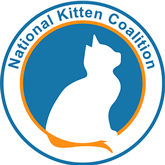O
Obligate carnivore (ob-li-geyt): An obligate carnivore, such as the cat, is one requiring nutrients found in sufficient quantities only in an animal-based diet
Obstipation (ob-stuh-pey-shuhn): A severe form of constipation that prevents the passing of stool or gas, usually caused by an obstruction in the intestinal tract
Obtunded (ob-tuhn-did): A diminished responsiveness to stimuli, often due to a state of reduced consciousness, which may occur in kittens with hypoglycemia
Occult (uh-kuhlt): Indicating a disease or condition that is clinically not apparent.
Off-label Use: Also known as extra-label, the use of a drug in a manner not approved by the Food and Drug Administration and not listed on the drug’s label, such as Methimazole for hyperthyroidism in cats
Oliguria (ol-i-gyoor-ee-uh): A medical condition in which there is not enough urination
Omphalitis (aam-fuh-lai-tuhs: An infection of the umbilicus and/or surrounding tissues that occurs primarily during the neonatal period and can rapidly progress to sepsis and death
Onychectomy (uh-nee-kek-tuh-me): An elective surgical procedure, also known as declawing, that involves the removal of the third phalanx bone using a guillotine-type nail clipper, surgical blade or laser
Oocyst (oh-uh-sist): The stage in the life of certain parasites in which they are encapsulated and usually passed through droppings
Opisthotonus (ow-pis-thuh-tow-nuhs): The abnormal, extreme extension of the head and neck toward the back caused by muscle spasms, which may occur with seizures
Otitis (oh-tahy-tis): Inflammation of the ear canal
Otoscope (oh-tuh-skohp): A hand-held instrument for examining the external canal and tympanic membrane (eardrum) of the ear
Ovariohysterectomy (oh-vuh-ree-o his-tuh-rek-tuh-mee): The surgical removal of the ovaries and uterus; generally referred to as spay when referring to female companion animals
P
Palpation (pal-pey-shuhn): Examination by finger pressure to detect growths, changes in underlying organs, and unusual tissue reactions to pressure.
Pancreatitis (pan-kree-uh-tahy-tis): Inflammation of the pancreas
Pandora syndrome: A disorder resulting from chronic anxiety (stressors that the cat finds threatening), which may lead to urinary problems, such as feline interstitial cystitis, in cats
Parenteral (pa-ren-ter-uhl): Feeding intravenously (via a vein), which may be needed because of uncontrolled vomiting
Parturition (pahr-too-rish-uhn): The act of giving birth
Pediculosis (puh-dik-yuh-loh-sis): The condition of being infested with lice
Periuria (per-ee-yoo-rahy-uh): Urination outside the litter box, which may be caused by medical (infection, arthritis) or behavioral (location of litter box, aversion to litter) factors
Pheromone (fer-uh-mohn): A chemical released by an animal that influences the physiology or behavior of other members of the same species
Pica (pahy-kuh): Eating non-edible materials such as wool, plastic and cellophane, which can cause intestinal obstruction and require surgery
Piloerection (pai-low-uh-rek-shun): The lifting of the fur, typically on the back and tail, caused by the contraction of tiny muscles at the base of each hair, which may occur when a cat is frightened
Plasma drops (plaz-muh): A treatment option for deep or severe corneal ulcers, which requires using a cat’s plasma, the liquid part of the blood, to speed up healing
Plasma Cell Pododermatitis (poh-doh-dur-muh-tahy-tis): Inflammation caused by the infiltration of plasma cells into the paw pad, typically the central one, of more than one foot, which may heal spontaneously or require lifelong treatment
Polycythemia (paa-luh-see-mee-uh): A rare disease in cats characterized by the overproduction of red blood cells by the bone marrow
Polydactyl (pol-ee-dak-til): The presence of extra toes due to abnormal activity by the sonic hedgehog protein during early development; see Janus
Polydipsia (pol-ee-dip-see-uh): Excessive thirst
Polyestrous (pol-ee-es-truhs): Having several estrus cycles during a breeding season and continuing to come into heat if not bred
Polyphagia (pol-ee-fey-jee-uh): Excessive appetite or overeating
Polyuria (pol-ee-yoor-ee-uh): Urinating larger volumes than normal
Primordial pouch (prahy-mawr-dee-uhl powch): The extra loose skin and some fatty tissue along the belly that protects the vital organs, provides flexibility and expands for food storage; all cats are born with a primordial pouch
Prognosis (prog-noh-sis): The forecast of the probable survival or recovery following a disease or injury
Pruitis (proo-rahy-tuhs): Any intense sensation of itching, which may occur with fleas, infection and allergies
Purulent (pyoor-uh-luhnt): Being full of, containing, forming, or discharging pus
Pus (puhs): A thick, yellowish-white fluid seen in wounds and sores and containing white blood cells, microorganisms, and tissue debris
Pyelonephritis (pahy-uh-loh-nuh-frahy-tis): Inflammation of the kidney and its pelvis, caused by a bacterial infection
Pyoderma (pai-uh-dur-muh: Any skin eruption characterized by pustules or the formation of pus
Pyometra (pai-ow-meh-truh): A disorder characterized by the accumulation of a large amount of pus in the uterus
Pyrexia (pahy-rek-see-uh): A feverish condition

